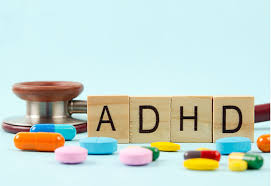Attention-Deficit/Hyperactivity Disorder (ADHD) impacts people of all ages, affecting their ability to focus, organize, and manage impulses. Whether someone is newly diagnosed or seeking to adjust their current approach, understanding ADHD treatment options is key to finding effective solutions. This article outlines some of the supportive pathways available for children and adults living with ADHD.
Contents
Behavioral Therapy and Coaching
Behavioral therapies offer important tools for managing ADHD symptoms. For children, this often involves teaching both the child and their caregivers skills to improve attention and reduce disruptive behaviors. These strategies foster better communication, enhanced self-control, and create a more supportive home and school environment.
For adults, therapy or coaching focuses on improving organizational skills, time management, and communication. Behavioral approaches allow individuals to work with qualified professionals, such as therapists or coaches, to establish strategies tailored to their needs. This hands-on, personalized support is a key tool in managing everyday challenges associated with ADHD.
The Role of Educational and Workplace Support
Support in school or work settings plays a role in tackling ADHD. For children, specialized educational plans like Individualized Education Programs (IEPs) and 504 Plans help tailor accommodations. These might include extra time for exams, structured classroom environments, or assistance capturing notes during lessons.
Adults may benefit from workplace adjustments, which can involve flexible deadlines, designated quiet workspaces, or task management tools. Open communication with supervisors typically enables better accommodation and fosters consistent support. These adjustments enhance productivity, reduce stress, and create a more ADHD-friendly work environment.
Lifestyle Adjustments
Simple daily habits can make a big difference in managing ADHD symptoms. Here are some practical lifestyle changes that might help:
- Consistent Routine: Establishing daily schedules for work, meals, and rest.
- Physical Activity: Engaging in regular exercise to improve focus and mood.
- Healthy Nutrition: Eating a balanced diet to keep energy levels stable.
- Quality Sleep: Prioritizing sleep to reduce fatigue and improve concentration.
- Mindfulness Practices: Incorporating meditation or deep breathing exercises to enhance self-awareness and emotional regulation.
- Task Organization: Using planners, apps, or to-do lists to break tasks into manageable steps and stay on track.
Supportive Tools and Resources for ADHD
Technological tools and resources also provide meaningful assistance for individuals managing ADHD. Smartphone apps and planners may help with task organization and reminders. Tools like noise-blocking headphones or focused workspaces can minimize distractions while completing tasks.
Community support networks play another valuable role. Joining ADHD-focused groups or online communities can offer encouragement, practical advice, and shared experiences. These networks create spaces where individuals can connect and feel understood.
Building on these strategies, professional guidance further enhances an individual’s ability to manage symptoms effectively. Comprehensive ADHD Treatment typically combines behavioral therapy, coaching, lifestyle adjustments, and, when appropriate, medical intervention. Integrating these approaches with supportive tools and community resources helps one strengthen focus, improve emotional regulation, and achieve a more balanced and fulfilling daily life.
Moving Forward with Awareness and Support
Managing ADHD is a highly personal process, and no single treatment works for everyone. Combining behavioral therapies, educational or workplace support, lifestyle adjustments, and practical tools often provide a well-rounded approach. With proper resources and a supportive environment, individuals of all ages can gain greater control over their symptoms and thrive in work, school, and life. If you’re supporting someone with ADHD or simply looking for resources, don’t hesitate to reach out to local mental health professionals or organizations specializing in ADHD.

Sarah Wilson, an accomplished writer and seasoned blogger, weaves compelling narratives that transport readers to new and uncharted worlds. With a talent for vivid storytelling and thoughtful insight, her work leaves a lasting mark, enchanting both the imagination and intellect.
